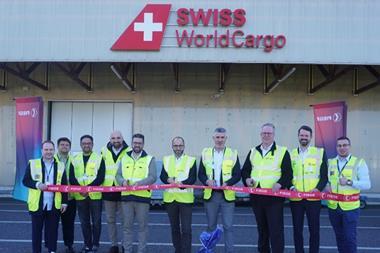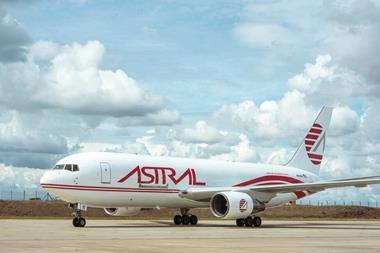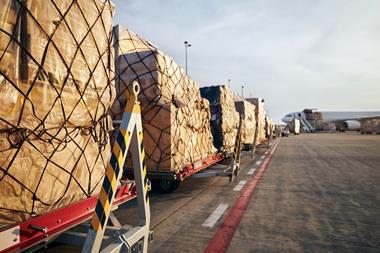Qatar Airways saw cargo revenues increase by 16.8% to QR10.1bn in fiscal 2019 on the back of fleet expansion, but the overall airline reported a loss.
The airline said during the fiscal year it transported 1.4m tonnes of cargo an increase of 6.8% year-on-year as it grew to become the second largest cargo carrier in the world.
Its cargo volumes have been on the rise since 2008, the carrier pointed out.
Meanwhile, cargo capacity was up by 11.8% in available tonne km terms.
The carrier’s freighter fleet has grown during 2018-19 with three new Boeing 777 freighters.
It will welcome a further five B777Fs by the end of this year, boosting its all-cargo line-up to 28 aircraft, including two B747-8Fs, 21 B777Fs and five A330Fs.
The airline has the ambition of becoming the world’s largest air cargo carriers (excluding express operators) and has been closing in on Emirates SkyCargo, which currently occupies the number one spot.
“The launch of transpacific freighter services from Macau to North America in October 2018 enhanced the capabilities of the business, allowing customers in China to ship their cargo directly to the US and Mexico over the Pacific, significantly reducing air transport time,” the airline said.
As well as Macau, freighter services were launched to Guadalajara and Almaty this year.
In total, Qatar Airways Cargo now offers 65 freighter flights per day.
Meanwhile, the overall airline saw revenues increase by 14% to QR48bn but it reported a loss for the year of QR2.3bn.
Results were affected by the ongoing airspace blockade on Qatar put in place by neighbouring countries, which started on June 5, 2017.
Qatar Airways Group chief executive Akbar Al Baker said: “2018-19 was a year of achievement in the face of adversity for Qatar Airways.
“Despite facing challenges that are unparalleled in the airline industry, I am very proud that we have grown our fleet, expanded our network and seen overall revenue increase.
“2018-19 was nonetheless a challenging year and while it is disappointing that Group has registered a net loss of QR2.3bn – attributable to the loss of mature routes, higher fuel costs and foreign exchange fluctuations – the underlying fundamentals of our business remain extremely robust.”
The airline launched 11 new destinations during the fiscal year 2019 and has now added a total of 31, as at September 1, since the start of the blockade, growing its network to over 160 airports.
The airline’s fleet grew by 25 aircraft to a point where it welcomed its 250th aircraft in March 2019 and it has more than 300 aircraft on order.















